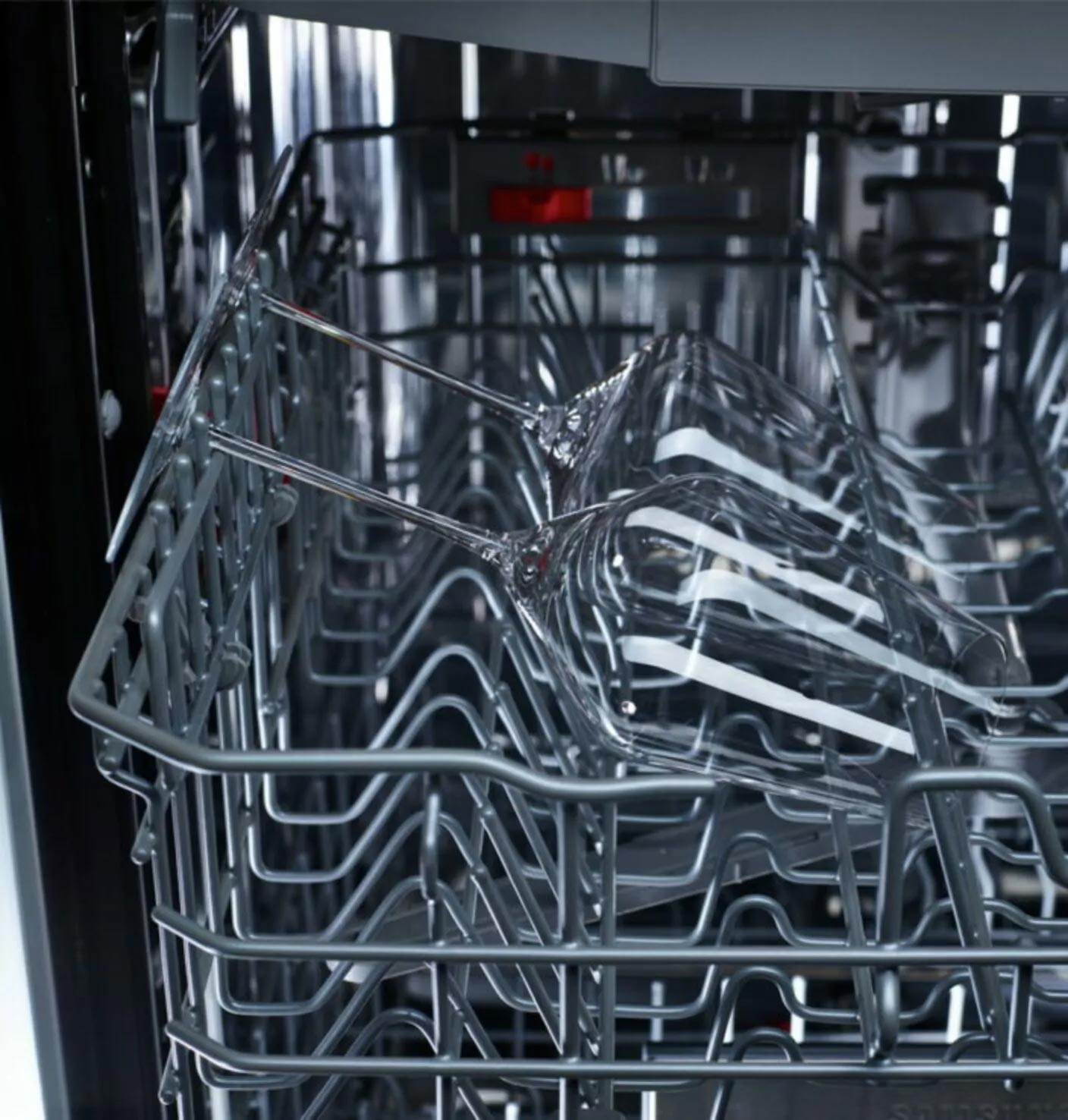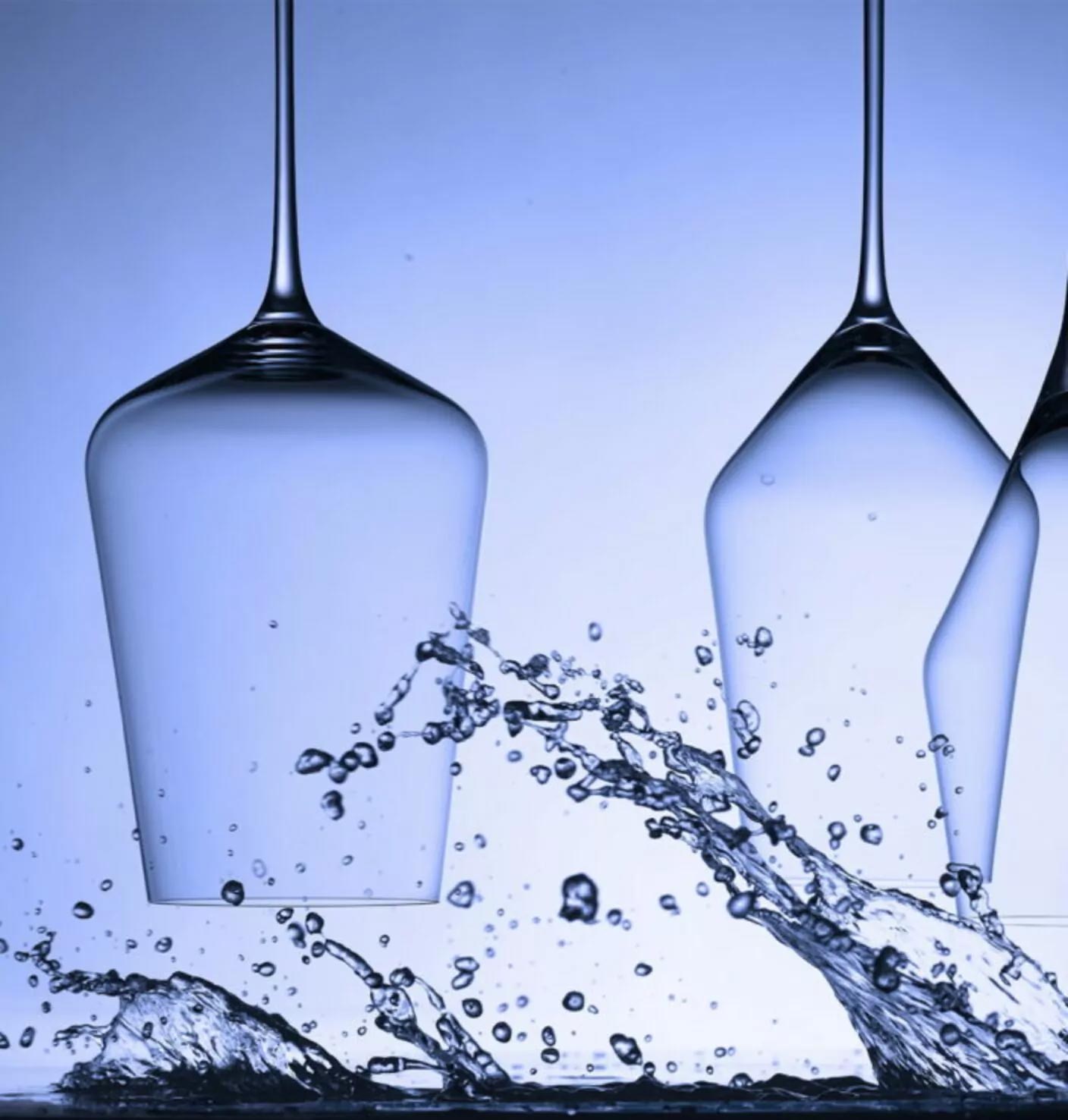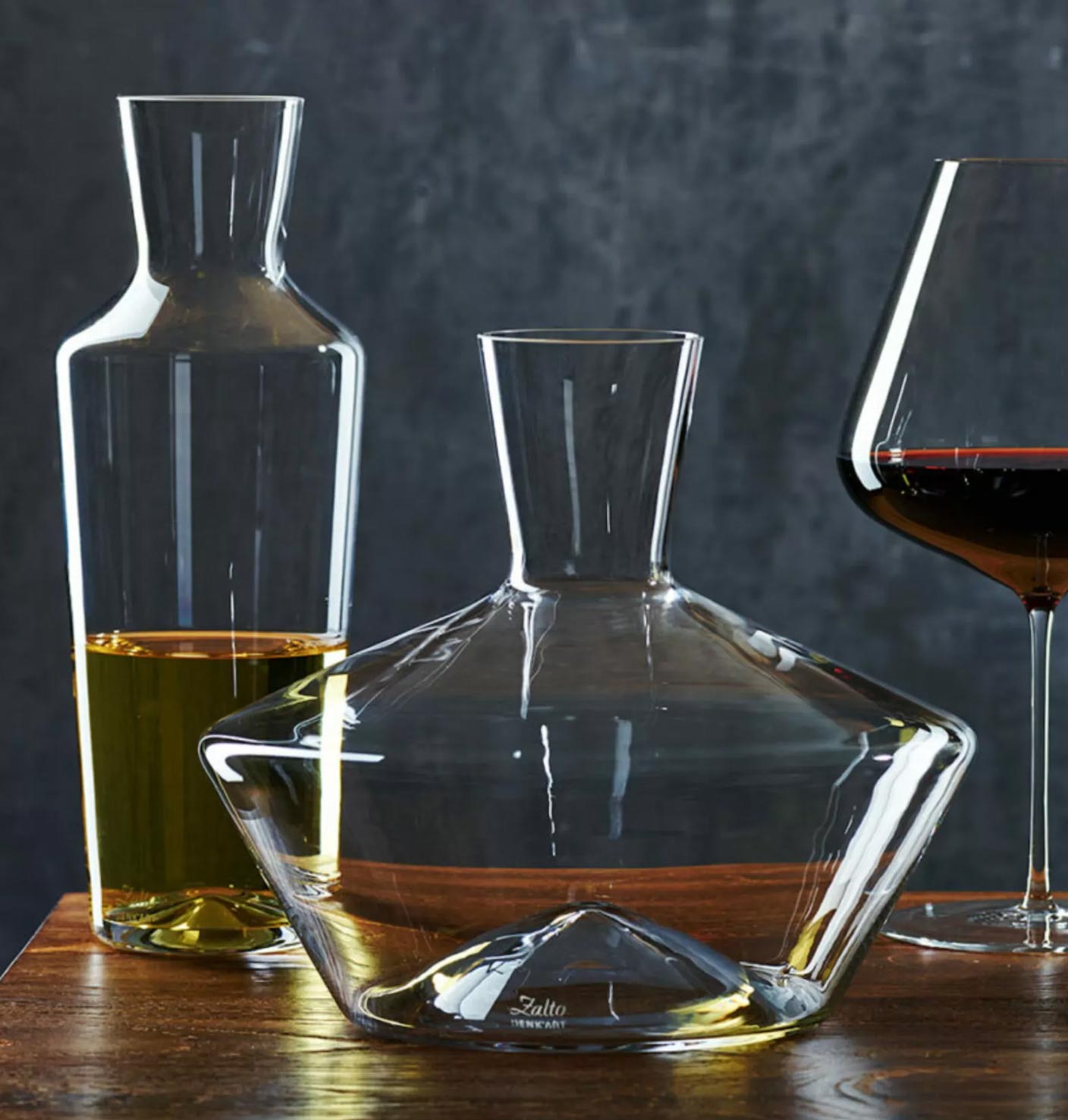Zalto Glassware Care – Essential Tips for Protecting Your Crystal
To help you enjoy your Zalto wine glasses and Zalto decanters for years to come, we’ve refined our top care recommendations. With proper handling, Zalto’s mouth-blown Austrian crystal will maintain its brilliance, balance, and performance.
1. Avoid Leaving Wine in Glasses Overnight
Never leave wine in Zalto glasses or decanters overnight. Acidity and tannins can etch, stain, or corrode the crystal.
If you’re not washing immediately, add a small amount of water to each glass to prevent residue from drying and damaging the surface.
2. Use Minimal Detergent & Lower Temperatures to Optimise Clarity
Keep washing temperatures below 60°C (140–170°F).
Choose an eco-friendly, phosphate-free detergent. Use ⅓ to ½ the recommended detergent amount.
Always rinse glasses first to remove wine acids. This prevents cloudiness, streaking, and long-term wear.
3. Dishwasher Safe — When Done Properly
Contrary to common concern, Zalto glassware is dishwasher safe. In fact, machine washing often reduces the risk of breakage associated with manual washing and polishing. Use a gentle cycle and avoid overcrowding to protect the delicate crystal.
4. Use a Glass Rack for Added Protection
For frequent cleaning or entertaining, a dedicated glass rack provides optimal support.
When selecting a rack:
Ensure the glass fits snugly, with slight movement.
The bowl should not touch the sides.
Never force a glass to fit a fixed compartment.
Glass racks can be sourced from dishwasher manufacturers or restaurant supply companies.
Dishwasher Tips for Zalto Glassware
Clean and maintain your machine regularly. De-scale, sanitise, and remove residue for top performance.
Designate a safe loading area where glasses won’t touch other items.
Load glassware last to prevent accidental knocks or breakage.
Rinse dishes before loading to reduce grease and tannin residue in the wash cycle.
Use a wash setting below 60°C (140–170°F).
Avoid detergent tablets. Choose an eco-friendly, phosphate-free powdered detergent and use sparingly.
Always use a high-quality rinse aid to minimise water spots.

After the wash cycle is complete.
Avoid letting glassware dry with pooled water on base or bowl lip, as it can leave watermarks.
Lift glassware by stem and lightly dry the base and lip of the glassware with a lint free, glass polishing cloth.
Avoid torque. Keep a light touch when polishing and always rotate the stem base and bowl in the same direction.
Always store glassware upright, never upside down, to prevent chipping the bowl lip edge.
How to Hand Wash Zalto Glassware
Prepare your space: Clear the bench, create ample room, and lay down a soft tea towel for drying.
Remove jewellery and wear high-grip dish gloves to prevent slips and protect the crystal.
Use warm water (<60°C) for washing and rinsing—never hot or boiling.
Wash with a soft cloth, warm water, a small amount of eco-friendly detergent, and a drop of rinse aid.
When cleaning the bowl, hold the stem gently between your fingers and support the bowl with your palm. Avoid pressure on the inside of the glass.
Continue holding by the stem to wash the base, then rinse thoroughly to remove all detergent residue.

Drying & Polishing Zalto Stemware
High-quality wine glasses—regardless of brand—have delicate stems, making proper polishing essential. Always rotate the bowl and base in the same direction to avoid torque and prevent stem breakage.
For drying, place the glass on a tea towel and use a lint-free polishing cloth. Allow the glass to cool before polishing. We recommend the Winkler light linen towel for its gentle, streak-free finish.
Polishing steps:
Polish the base first: Hold the glass by the stem and drape the cloth over your hand, using your thumb and index finger to gently dry and shine the base.
Polish the bowl: Hold the stem near the base. With the cloth draped over your hand, dry the inside of the bowl, then the rim, and finally the outside—removing any remaining moisture or fingerprints.
For professional technique, watch the demonstration by Aldo Sohm, Wine Director at Le Bernardin and Zalto’s U.S. Ambassador.
How to Clean Zalto Decanters & Carafes
Decanters can easily develop stains, especially in curved areas, so quick, proper cleaning is key.
Never leave wine overnight. Rinse after use and clean the next day to prevent staining.
Wash with warm water (<60°C), a little eco-friendly, phosphate-free detergent, and a drop of rinse aid. Gently swirl.
Use a soft decanter brush for hard-to-reach spots, and wash the exterior with a soft cloth. Rinse thoroughly.
Dry the exterior on a tea towel. For the interior, use a decanter drying stand and periodically dry the mouth to prevent water spots.

Useful Glass Facts - Understanding and Caring for Fine Crystal
1. Only the Purest Sand Becomes Fine Glassware
The highest-quality glass, including Zalto stemware, is made from the purest silica sand—the same grade used in optical lenses and automotive windshields. Remarkably, less than 1% of the 50 billion tonnes of sand extracted each year meets the strict standards required for premium glassmaking.
2. All Glass Is Vulnerable to Corrosion
Glass is a solidified melt that has not fully crystallised. Over time, alkaline ions can migrate to the surface, causing cloudiness or turbidity. This is a natural ageing process shared by all glassware.
3. Reversible vs. Irreversible Damage
Irreversible damage occurs when softened hard-water minerals or abrasive, high-phosphate detergents etch the surface, creating a permanent silica film.
This can be avoided by using minimal, phosphate-free detergent and choosing products formulated for soft-water conditions.
4. Modern Glass Is Dishwasher Safe — With Exceptions
Advances in glassmaking mean that most modern glassware, including Zalto’s lead-free crystal, is safe for dishwasher cleaning when handled properly.
However, all glass becomes more fragile with age, and certain types should be washed by hand:
Antique or vintage glass
Engraved or coloured glass
Leaded crystal
For these pieces, gentle hand washing is always recommended.
Photo Credits:
Zalto Denk'Art Glas, Austria
Aldo Sohm, NYC
